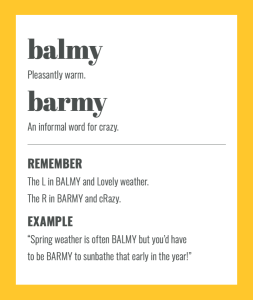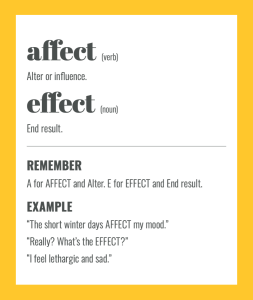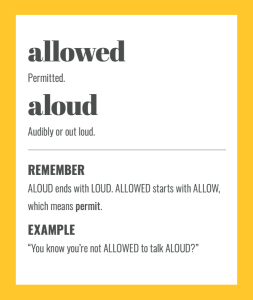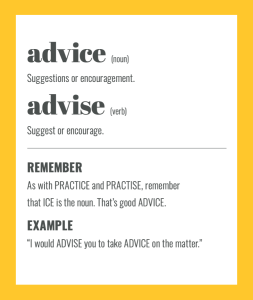Balmy vs barmy: simple tips to remember the difference
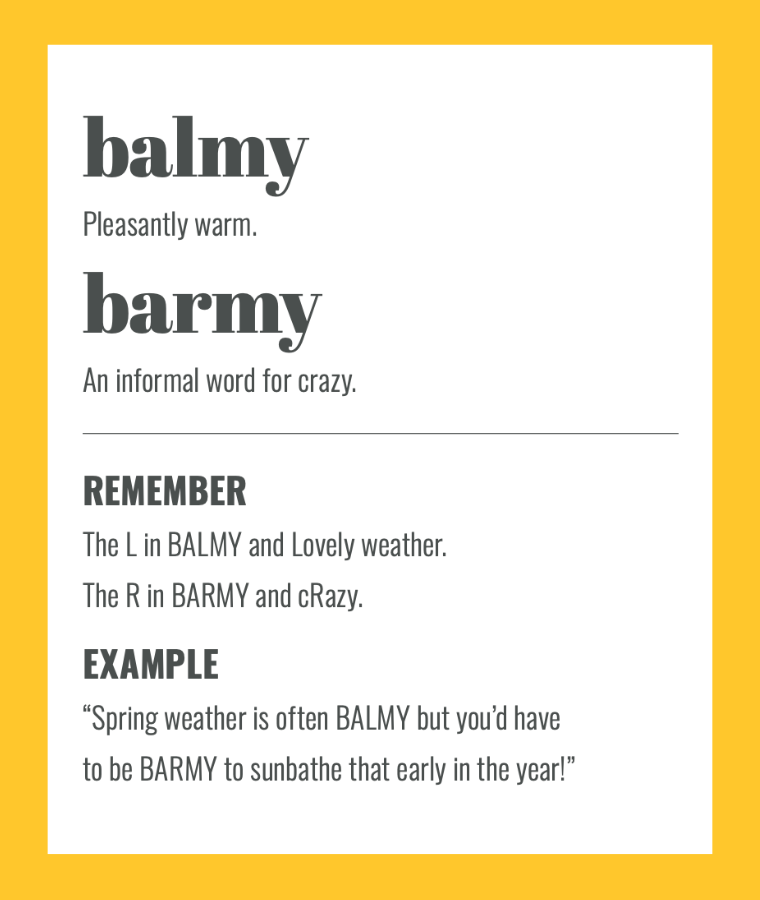
BALMY vs BARMY: which is which? Top tips to remember the difference.
BALMY and BARMY – these soundalike words (also known as homophones) are easy to confuse.
And there’s a big difference between a BALMY (warm) summer’s day and a BARMY (crazy) summer’s day!
Here are my simple spelling tips to remember the difference between BALMY and BARMY.
BALMY is an adjective (a describing word) that means pleasantly warm. If you’re tempted to confuse it with BARMY remember L for lovely weather.
“It’s a beautiful BALMY summer day.”
BARMY is a colloquial or informal expression for mad or crazy.
“It’s all too much – I’ve finally gone BARMY!”
Get more tips in The Little Book of Confusables
Effect or affect: do you know the difference?
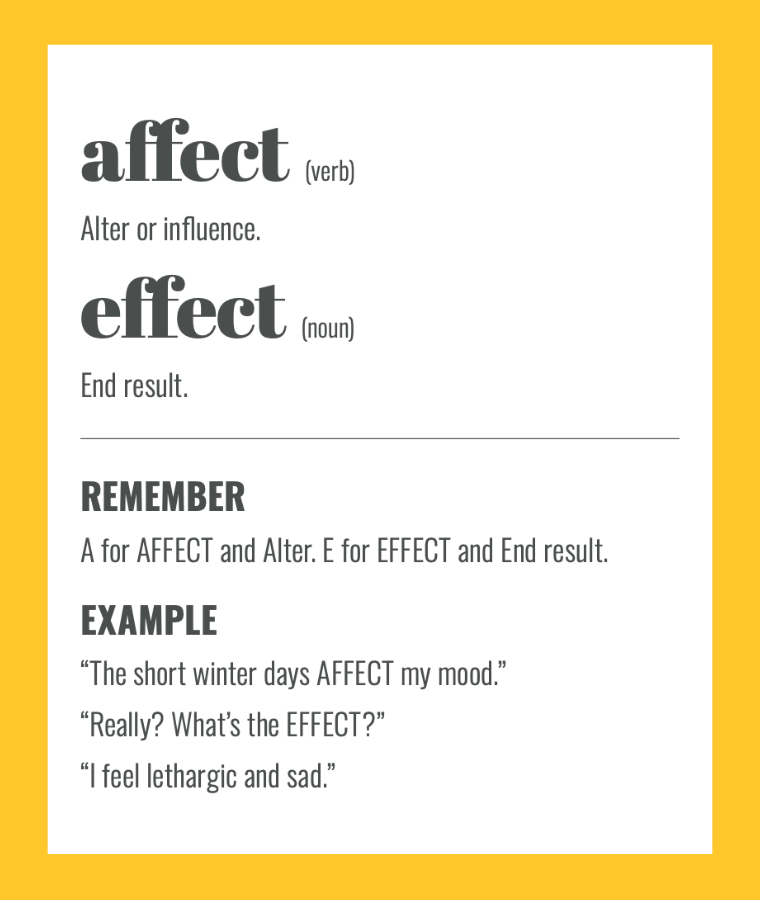
Simple tips to remember the difference between EFFECT and AFFECT
EFFECT and AFFECT are easy to confuse and often spelled wrong.
The fact that the two words sound the same – they’re homophones – means people commonly mix them up.
Here are my simple tips to remember the difference between EFFECT and AFFECT.
AFFECT is a verb that means alter or influence. Think A for alter.
“The rain AFFECTS my hair.”
EFFECT is most commonly a noun meaning the result of something. Think E for end result.
“The EFFECT of the rain is wet hair.”
Advanced lesson
That cheeky little ‘most commonly’ above? EFFECT can also, rarely be used as a verb, to mean ‘bring something about’.
“The voting was rigged to EFFECT the victory.”
EFFECT as a verb is rarely written outside of formal English, so you’re fairly safe to assume you won’t need this spelling.
Get more tips in The Little Book of Confusables
Aloud vs allowed: top tips to remember the difference
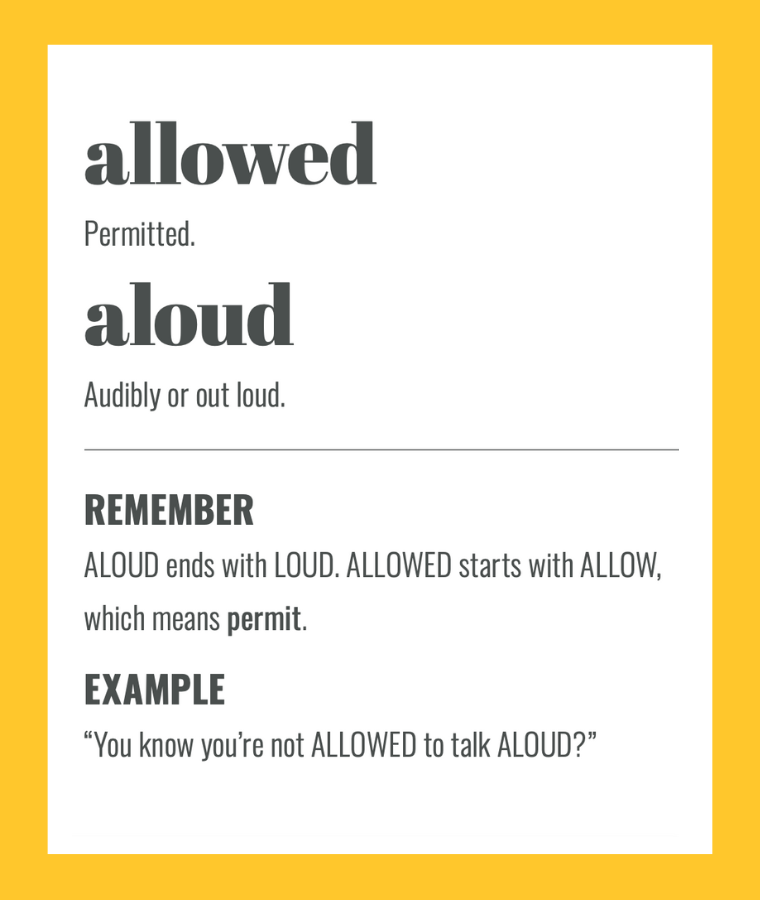
ALOUD vs ALLOWED: which is which? Tips and tricks to remember the difference.
ALOUD and ALLOWED are easy to confuse. The fact that the two words sound the same – they’re homophones – means people commonly mix them up.
Here are my simple tips to remember the difference between ALOUD and ALLOWED.
ALOUD means out loud. Remember that this spelling ends in LOUD.
“I’m just thinking ALOUD.”
ALLOWED means permitted. Remember it starts with ALLOW.
“You are ALLOWED to read ALOUD.”
In its verb form, ALLOWED is that past tense of ALLOW.
“She ALLOWED him to read ALOUD.”
Get more tips in The Little Book of Confusables
Advise vs Advice: top tips to remember the difference

ADVISE vs ADVICE: do you know the difference?
ADVISE and ADVICE are easy to confuse. The fact that they look so similar trips people up time and time again.
Here are my simple tips to remember the difference between ADVISE and ADVICE.
ADVISE is a verb that means suggest, encourage or tell someone to do something.
“I ADVISE you to learn the difference between ADVISE and ADVICE.”
ADVICE is a noun.
The best way to remember this is that it ends with ICE, which is also a noun:
“That’s good ADVICE.”
Understanding the difference between the ISE and ICE endings can help you to remember the spellings of other similar word pairs.
Think DEVISE (verb) and DEVICE (noun), or PRACTISE (verb) and PRACTICE (noun).
(Note that the latter applies to the British English spelling only – US English has its own rules.)


